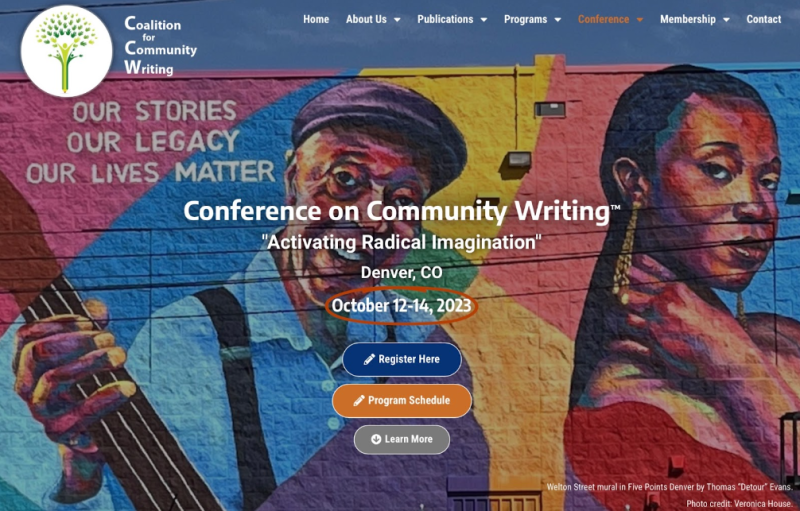Working and Writing for Educational Equity and Justice in Denver Public Schools
By: Brad Benz, Teaching Professor | John Macikas, CCESL Student Programs Manager | Carrie A. Olson, Denver Public Schools Board of Education and Morgridge College of Education faculty member

Caption: The University Writing Program hosted the Conference on Community Writing in October 2023.
In February 2023, DU Grand Challenges–with support from the Center for Community Engagement to advance Scholarship and Learning (CCESL), the Institute for the Study of (in)Equality (IRISE), and the Office of Public Good Strategy and Research–launched a collective impact cohort whose focus was educational equity and justice in Denver Public Schools (DPS). The cohort included the seven elected members of the DPS Board of Education, seven faculty and staff members from the University of Denver, and three CCESL facilitators.
Caption: Denver Public Schools Board of Education, with Superintendent Alex Marrerro (bottom row, center).
DPS Superintendent Alex Marrero opened the cohort’s first meeting, laying out his hopes for our collaboration, and Provost Mary Clark launched our second meeting, affirming her commitment to educational equity. The cohort’s work culminated in the creation of five strategy proposals addressing aspects of educational equity and justice in DPS.
In October 2023, the University of Denver Writing Program hosted the Conference on Community Writing, a national conference that focuses on writing as a catalyst and tool for social change in our communities. The conference offered the perfect opportunity for three cohort members to discuss and disseminate some of the cohort’s work.
During their roundtable presentation, Carrie A. Olson shared her thoughts on bridging the gap between practitioners and researchers. She emphasized that both groups have so much to add to the conversation about how to address some of the most pressing issues in public education. The cohort’s work laid a strong foundation on which to build for the future.
John Macikas shared his reflections on the process of facilitating the cohort. Providing backbone support with other facilitators and support staff, he had the opportunity to engage in robust planning, coordination, and communication to help the cohort meet their action-planning goals in a relatively short time frame. As they worked to ensure clarity of task, encourage meaningful group collaboration, and forward progress during cohort meetings, he witnessed the cohort mutually compose vision, share knowledge and expertise, and co-create strategies to achieve education equity.
Brad Benz reflected on his gratitude for and appreciation of the DPS Board of Education members, who operated under intense scrutiny and pressure from the local media and the public. He also discussed the many forms that educational equity can take in schools - all of which manifest in an effort to ensure fairness and inclusion for every student.
While the cohort meetings and roundtable have concluded, the cohort further strengthened ties between DPS and DU, with ongoing collaborations now in motion.